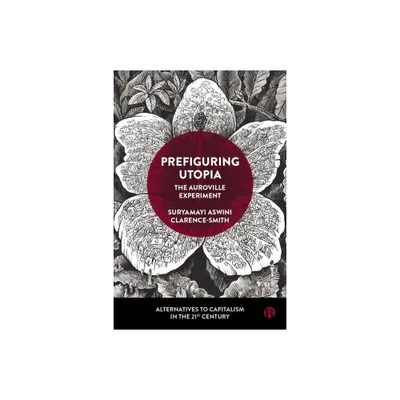Home
Real Utopia: Participatory Society for the 21st Century
Loading Inventory...
Barnes and Noble
Real Utopia: Participatory Society for the 21st Century
Current price: $21.95


Barnes and Noble
Real Utopia: Participatory Society for the 21st Century
Current price: $21.95
Loading Inventory...
Size: OS
*Product Information may vary - to confirm product availability, pricing, and additional information please contact Barnes and Noble
What if we had direct control over our daily lives? What if society’s defining institutions—those encompassing economics, politics, kinship, culture, community, and ecology—were based not on competition, individual ownership, and coercion, but on self-management, equity, solidarity, and diversity?
Real Utopia
identifies and obliterates the barriers to an egalitarian, bottom-up society, while convincingly outlining how to build it.
Instead of simply declaring “another world is possible,” the writers in this collection engage with what that world would look like, how it would function, and how our commitment to just outcomes is related to the sort of institutions we maintain. Topics include: participatory economics, political vision, education, architecture, artists in a free society, environmentalism, work after capitalism, and poly-culturalism. The catchall phrase here is “participatory society”—one that is directly democratic and seeks institutional solutions to complex sociological and economic questions.
Contributors include: Michael Albert, Barbara Ehrenreich, Steve Shalom, Robin Hahnel, Maria Trigona, Justin Podur, Tom Wetzel, Cynthia Peters, Andrej Grubacic, and Mandisi Majavu, among others.
Chris Spannos
is an activist, organizer, and anti-capitalist. He is a full-time staff member of the internationally acclaimed ZNet, a website dedicated to social change, hosting works by many of today’s leading social commentators, organizers, activists, and analysts, with 300,000 users weekly. He resides in Woods Hole, Massachusetts.
Real Utopia
identifies and obliterates the barriers to an egalitarian, bottom-up society, while convincingly outlining how to build it.
Instead of simply declaring “another world is possible,” the writers in this collection engage with what that world would look like, how it would function, and how our commitment to just outcomes is related to the sort of institutions we maintain. Topics include: participatory economics, political vision, education, architecture, artists in a free society, environmentalism, work after capitalism, and poly-culturalism. The catchall phrase here is “participatory society”—one that is directly democratic and seeks institutional solutions to complex sociological and economic questions.
Contributors include: Michael Albert, Barbara Ehrenreich, Steve Shalom, Robin Hahnel, Maria Trigona, Justin Podur, Tom Wetzel, Cynthia Peters, Andrej Grubacic, and Mandisi Majavu, among others.
Chris Spannos
is an activist, organizer, and anti-capitalist. He is a full-time staff member of the internationally acclaimed ZNet, a website dedicated to social change, hosting works by many of today’s leading social commentators, organizers, activists, and analysts, with 300,000 users weekly. He resides in Woods Hole, Massachusetts.


















